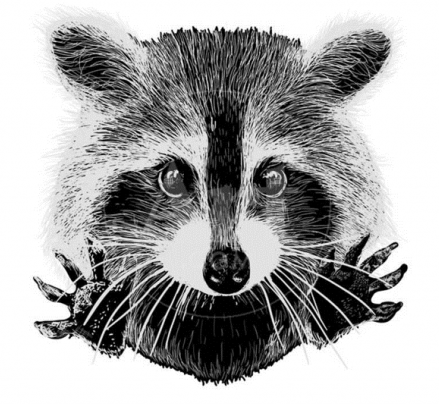Deborah and Rick Peters have been caring for local wildlife since they moved to Olde Wythe in 2003. Less than two months after they moved in the area was hit with hurricane Isabel and in the aftermath of the storm one of their sons came across a baby squirrel without a mama, so naturally he brought it home to Deborah. The rest as they say is history. Not sure how to care for the tiny critter, and not even having a local vet yet, Deborah contacted her vet in Ohio where they had moved from and was able to learn enough to nurse baby “Isabel” back to health and eventual release. Somewhat to add insult to injury they were also working to try to get their house back together after having nearly 2 feet of water in the first floor, and not having power for weeks. During this time they found out a few things, one being that in the state of Virginia it is not allowed to keep most all wildlife as pets, another being that in order to rehabilitate wildlife you must apply for and be licensed through the
Department of Game and Inland Fisheries. First Deborah and later Rick received their permits and have been taking in critters ever since.
There are different categories (Cat) for Wildlife rehabbers with a Cat 4 being an individual that can assist but is not licensed to keep wildlife in their home. A Cat 1 is allowed to rehab wildlife in their home, but still must be sponsored by a Cat 2 that can supervise Cat 1 and Cat 4 rehabbers. Deborah is a Cat 2 and has a couple Cat 1’s and a number of Cat 4’s that work under her. Not all rehabbers are licensed for all animals but Deborah and Rick are licensed for High Risk Rabies, Opossum, Small Mammals, and Reptiles. Being
one of the few folks on the peninsula that are able to handle rabies vectored animals they ending up getting the bulk of the baby raccoons that for whatever reason are without a mama to care for them.
Wildlife rehabbing is completely run by volunteers, and receives no state or federal funding. The Virginia Beach based organization Wildlife Response Inc maintains a hotline at (757) 543-7000, which can assist to connect individuals to a rehabber in their area with the ability to care the orphaned or injured wildlife.
Each year 1000+ critters of a variety of species have passed through the doors and received some level of care by the Peters’. Sadly not all of the wildlife make it to release, and if one animal has contracted a disease such as Parvo or Distemper there is the chance of it spreading to others. In order to minimize the possibility of disease spread there is a rigid and time-consuming cleaning and care protocol, which includes cage cleaning multiple times a day. For anyone who might be interested in learning more about caring for wildlife and the possibility of assisting feel free to contact Deborah info@wildliferesponse.org or calling the hotline 757-543-7000 to get started.
